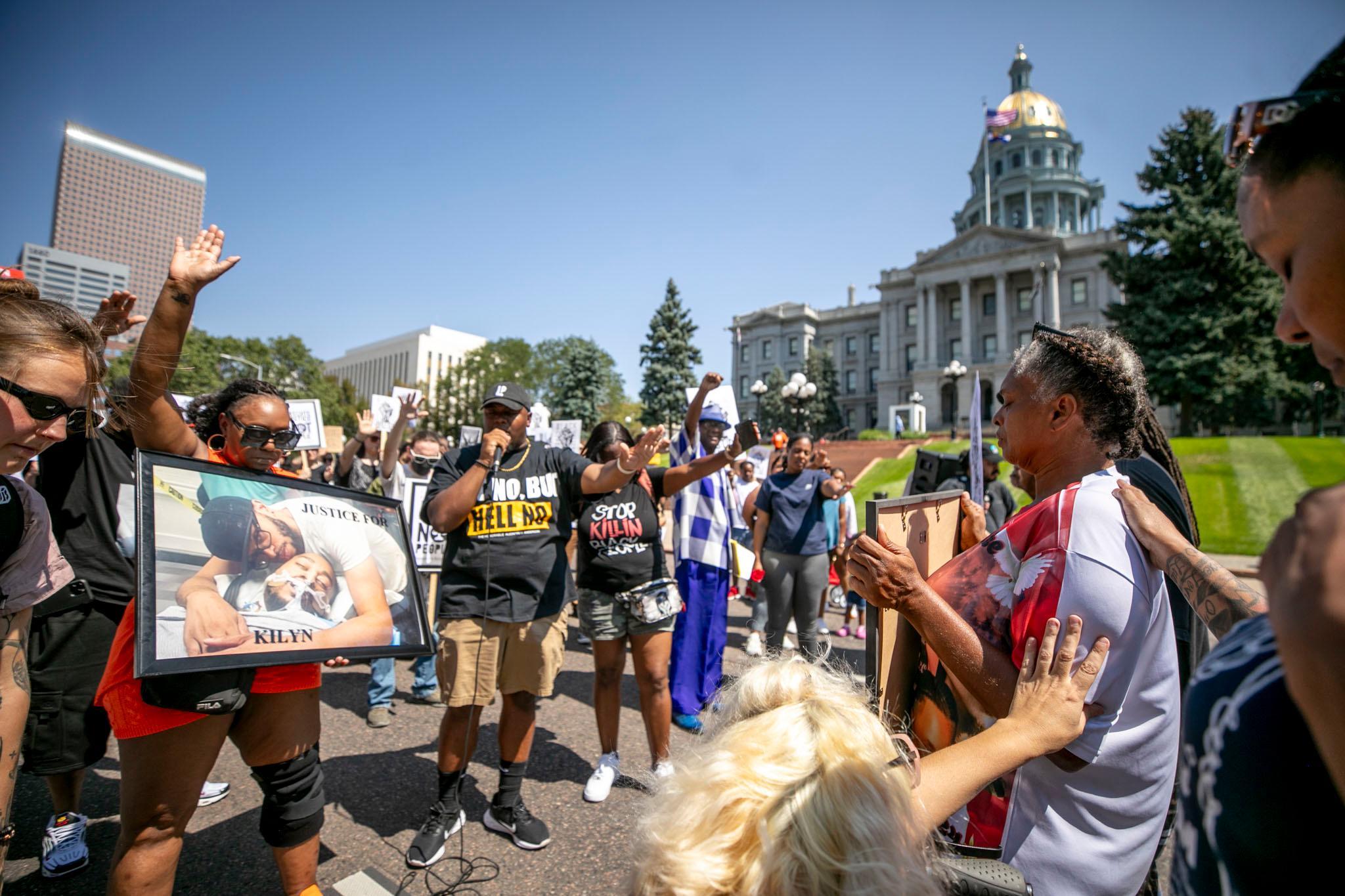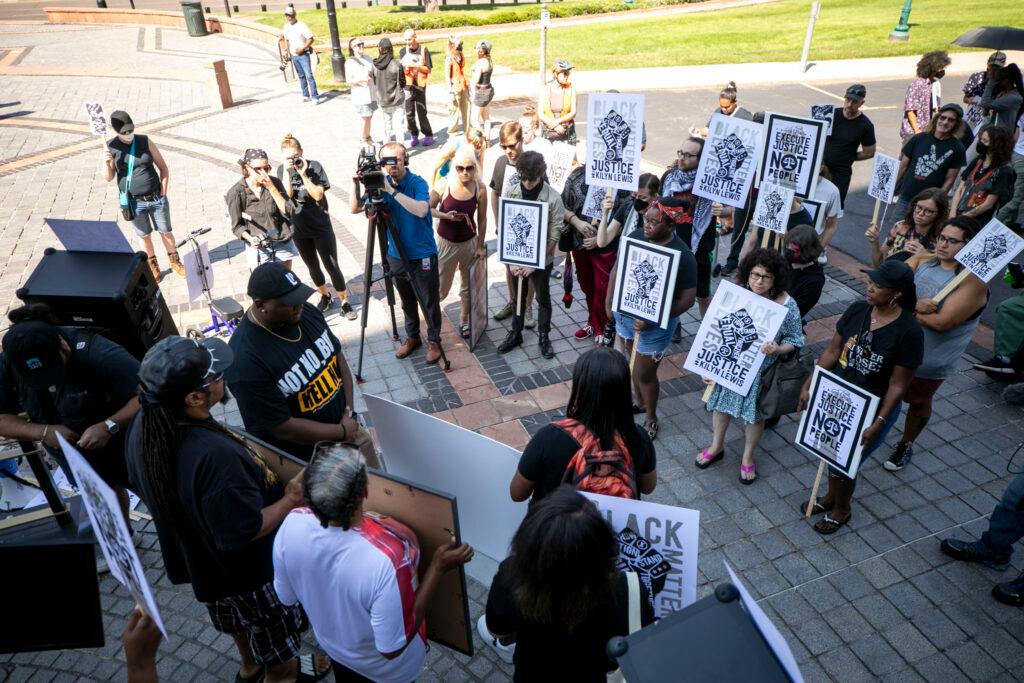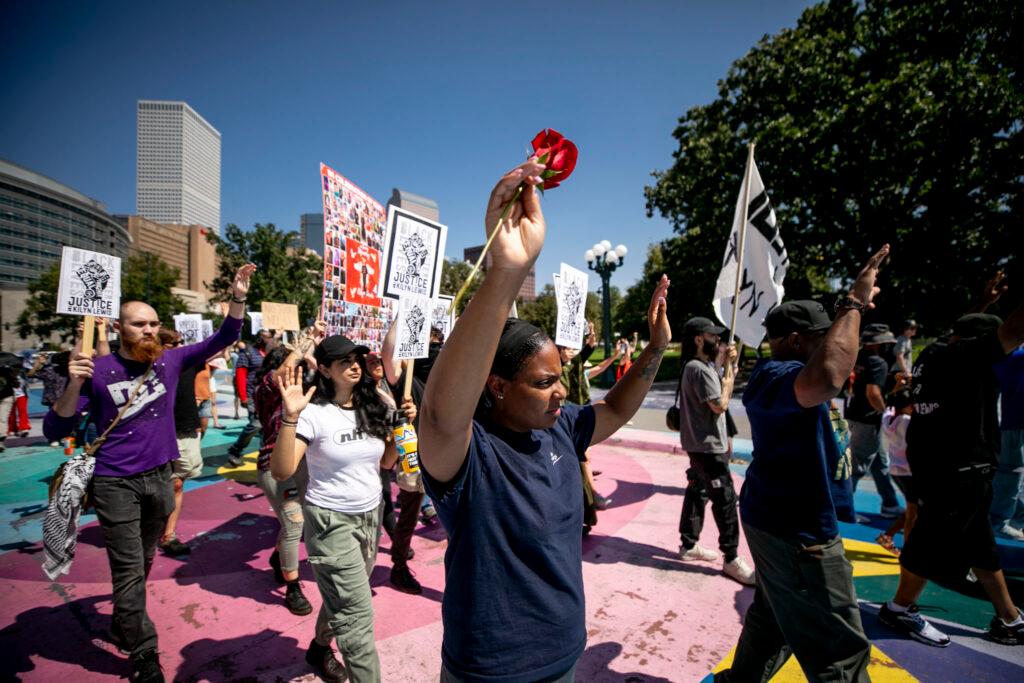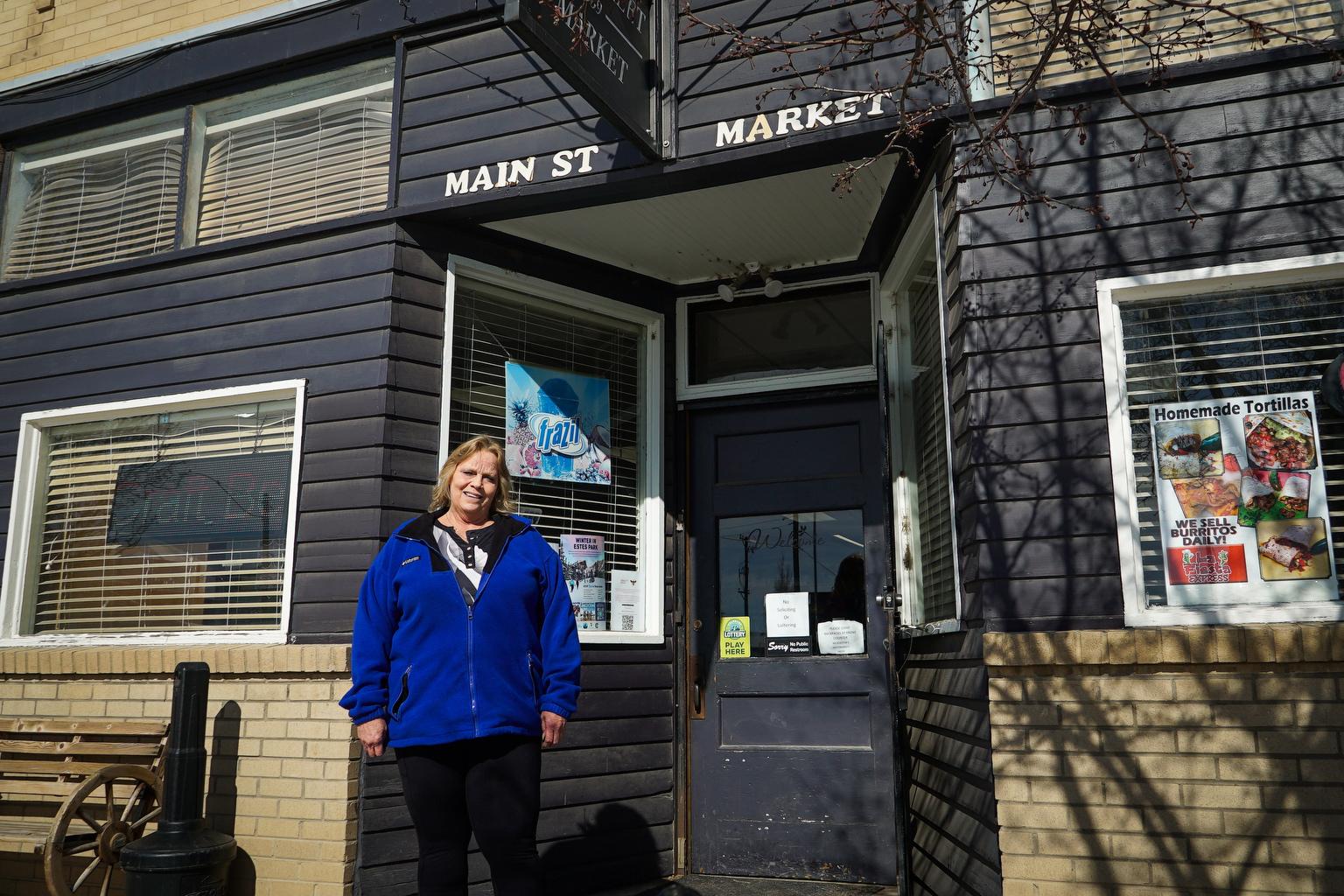
It’s been 100 days since Kilyn Lewis was shot and killed by Aurora Police. To mark the somber milestone, his family members and supporters marched through Downtown Denver Saturday.
Lewis’ family said they still haven’t gotten any answers from the city as the investigation into his death continues.
“We are going to continue this fight on and on and on until we do get justice for Kilyn Lewis, along with everybody else” harmed by Aurora police, Lewis’ mother LaRonda Jones told the crowd from the the steps of the state Capitol. “I want everybody to feel what I'm feeling right now and say, ‘no more.’ No more injustice. No more of people's lives being taken unjustifiably. No more of this police brutality (that) is senseless and very well unnecessary.”
About 50 people participated in the march from the Capitol across Civic Center Park to Denver City Hall and back. Shouts of Lewis’ name and other chants were heard throughout the march.
“I have lost family members and mourned them, but this just took the cake. Seeing him die on the police camera, they shot him down with his hands up in the air that just tore my heart,” said Sherinda Lewis, his grandmother. “People that are losing their loved ones because of the color of their skin. So, I pray that God is with us and we come together all across the nation so that we can stand up for one another and say, ‘no more, America.’”

Frustration with hiring of new police chief
The march was the latest in a string of protests over the actions of the Aurora Police Department in recent years. The voices have gotten louder since the city announced the hiring of Todd Chamberlain as its new permanent police chief after a 28-month search.
“There needs to be some more accountability … and we haven't really seen it much from Aurora City Council,” said Jude Novak, one of the protesters. “They've shut down a lot of stuff, so we're just hoping that there can be a change in that.”
During the formal introduction of Chamberlain, a former Los Angeles Police commander, Aurora City Manager Jason Batchelor disclosed that he excluded public input in the hire, arguing that the public process failed in previous attempts and that many potential candidates would not participate if there was a risk their current employer could find out they’d applied.
The lack of public input sparked disappointment from various organizations, including the Aurora Chapter of the NAACP. The Lewis family and their supporters voiced the same sentiment when the Aurora City Council approved Chamberlain’s hiring in an 8-2 vote last Monday.
“I think it's kind of scary and it's sad that it continues to uphold a system of racism,” said Kayla Dukes, who grew up in Aurora. “I don't think it's by design or by accident, unfortunately. But, I think us coming together more and showing numbers and us showing them that we're not going to accept the upholding of white supremacy is going to be the only thing that actually is going to push the needle forward.”
Chamberlain will lead a department under significant scrutiny
The Aurora Police Department is currently under a consent decree from the Colorado Attorney General’s Office due to a pattern and practice of racially-biased policing. The 2019 death of Elijah McClain was one of many incidents that State Attorney General Phil Weiser cited as reasons the department needs outside oversight. The shooting death of Lewis in May came even as the department is supposed to be reforming its approach to the use of force.
The Aurora consent decree’s lead monitor Jeff Schalanger said he’s glad that the Aurora Police Department has a permanent police chief, but that he understands the community’s frustrations.
“I think that it's important to note that the consent decree itself doesn't mandate a community-driven process for the selection of police chief and that I believe it is the city manager's prerogative to select the chief in the way that he deems appropriate,” Schlanger said. “I understand the community's desire to be involved and I think that really that lack of involvement up front puts the new chief in a position where he is just going to have to work that much harder to first gain and then build public trust with the community.”
Schlanger said cities often don’t take public input when hiring a police chief, and that includes Chamberlain’s past employer, the city of Los Angeles.
Schlanger also served as independent monitor for the LAPD following the beating of Rodney King and the subsequent riots in the early 1990s. Chamberlain was on the force during those events, and while Schlanger didn’t know him at the time, he is aware of Chamberlain’s involvement with the LAPD’s consent decree.
“There was a great success. And I think he has come away, after reading some of his public statements, understanding that a consent decree can in fact engender the right kind of attitude and the right kind of movement of the police department in terms of reform,” Schlanger said.
Schlanger has not spoken to Chamberlain since the announcement of his hiring. But, he plans to be in Aurora on September 9 when Chamberlain is sworn in.

However, among those who turned out Saturday to protest Lewis’ killing, there was little trust that the Aurora Police Department is really headed in the right direction.
“It's hard enough for a family to grieve for a member of their family to be gone, but then for it to be combined with police brutality and a complete lack of inaction from the police department and from the government, it just makes the pain that much worse and it's not right,” said Devi Dileep who traveled from Thornton for Saturday’s march. “There's just no other way to put it really.”









